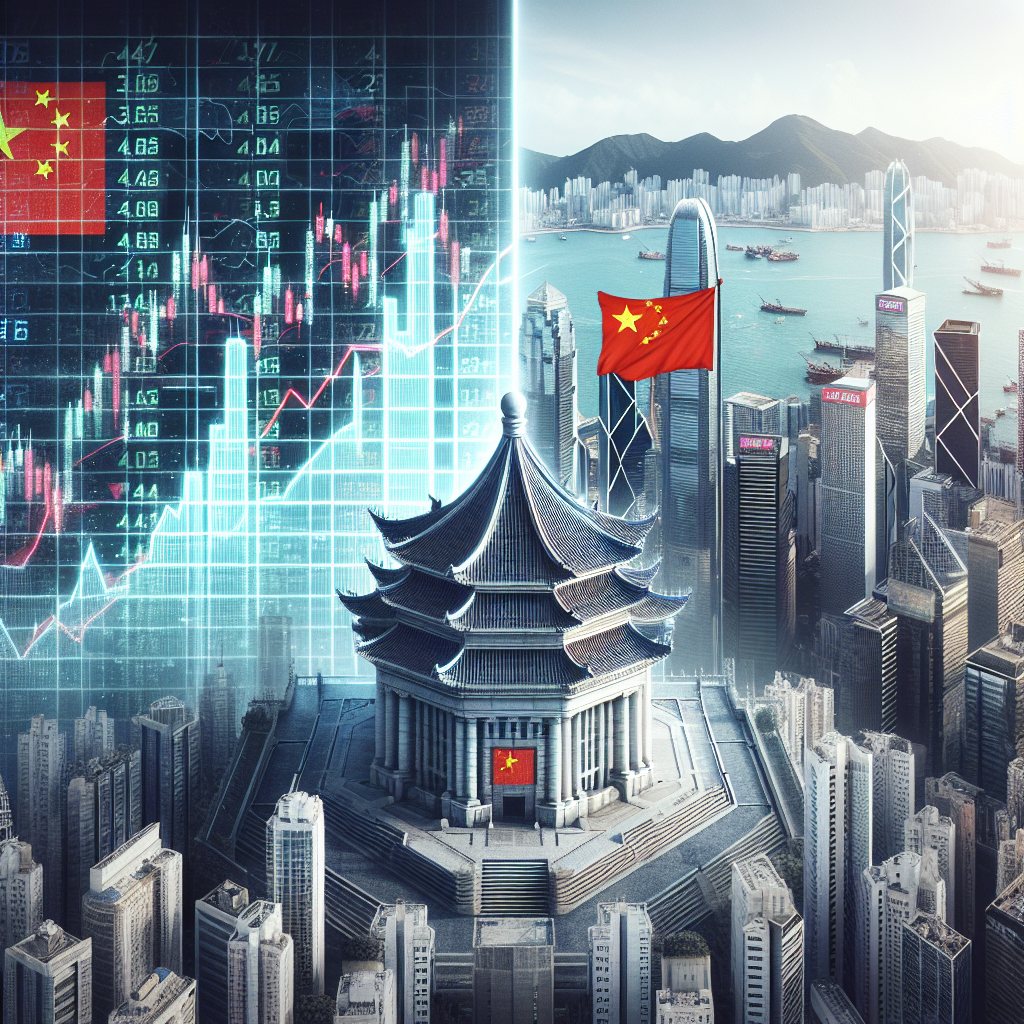China and Hong Kong Markets Brace for Turbulent Times Amid Tariff Threats
China and Hong Kong stocks fell as U.S. tariff hikes loom despite potential fiscal stimulus from Beijing. Key indices experienced slight declines, while concerns about U.S. tariffs impacting China's economic growth lingered. Analysts predict further fiscal interventions by Beijing to stabilize the market.

On Thursday, stock markets in China and Hong Kong saw a downturn as investors grappled with the dual prospects of U.S. tariff hikes and anticipated fiscal stimulus measures from Beijing.
By midday, the Shanghai Composite index dipped by 0.1% to 3,364.64, and the blue-chip CSI 300 index decreased by 0.22%. The consumer staples, real estate, and healthcare sectors experienced notable declines. Meanwhile, Hong Kong's Hang Seng Index also fell by 0.13% reaching 19,680.23.
Economists surveyed by Reuters express concern over potential U.S. tariffs, which could impact China's growth by 1 percentage point. Despite this, a rise in the automobile sector highlighted efforts to offset economic shocks through incentives. Regional markets, such as MSCI's Asia ex-Japan index and Japan's Nikkei index, also showed weakness.
(With inputs from agencies.)
ALSO READ
Global Leaders Emphasize Rural Investments for Food Security and Economic Growth at IFAD 48th Governing Council
Union Budget 2025-26: Pathway to Robust Economic Growth
Gujarat Leads Fiscal Health, Tripura Celebrates Economic Growth
Rising Rajasthan: A Gateway for Investment and Economic Growth
Malaysia’s Economic Growth Moderates in Q4 2024










